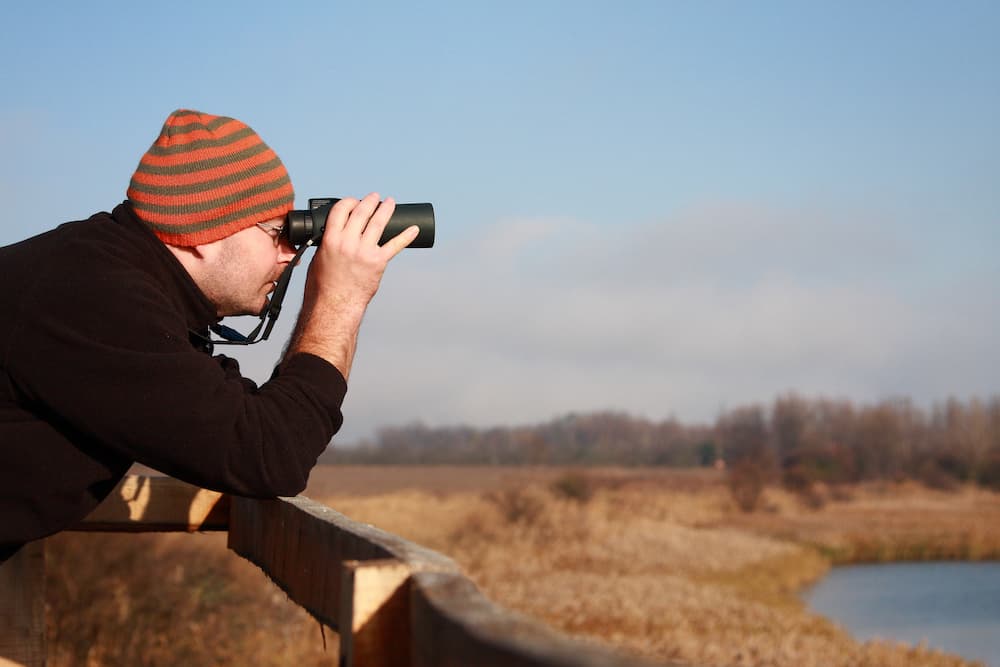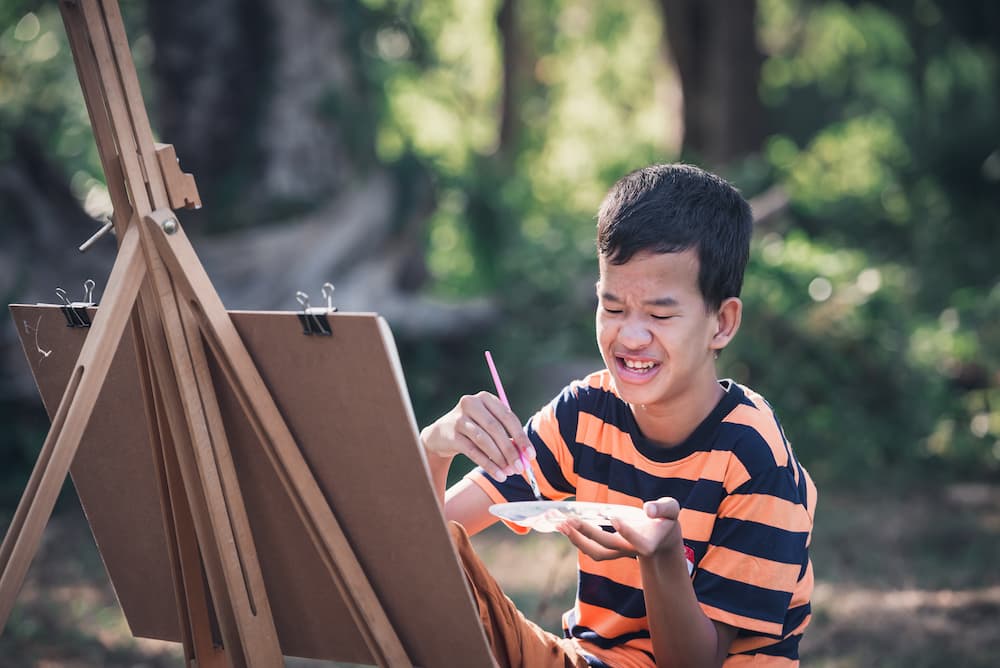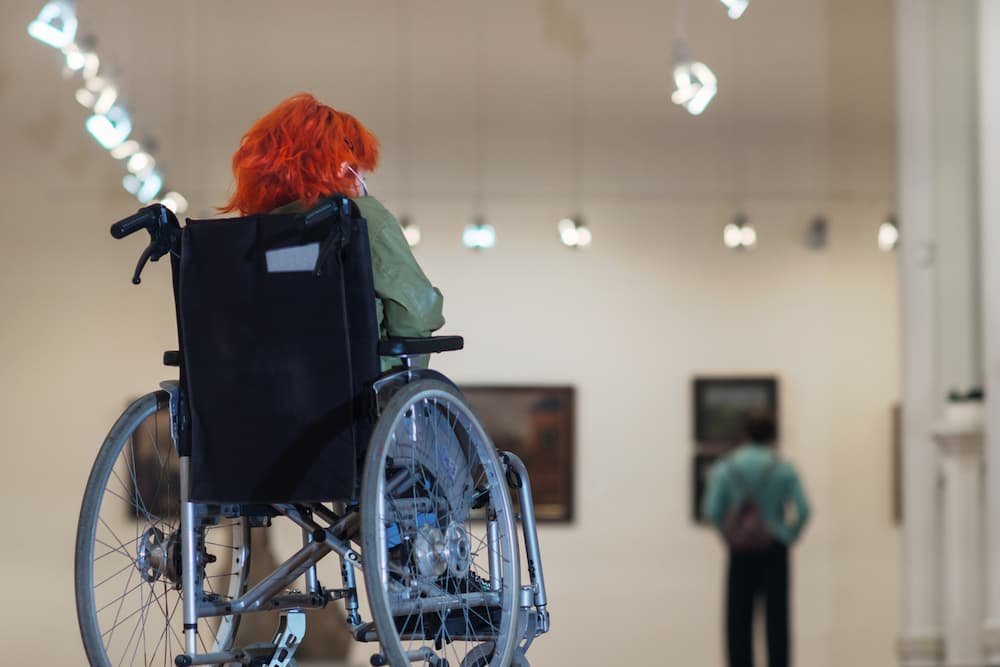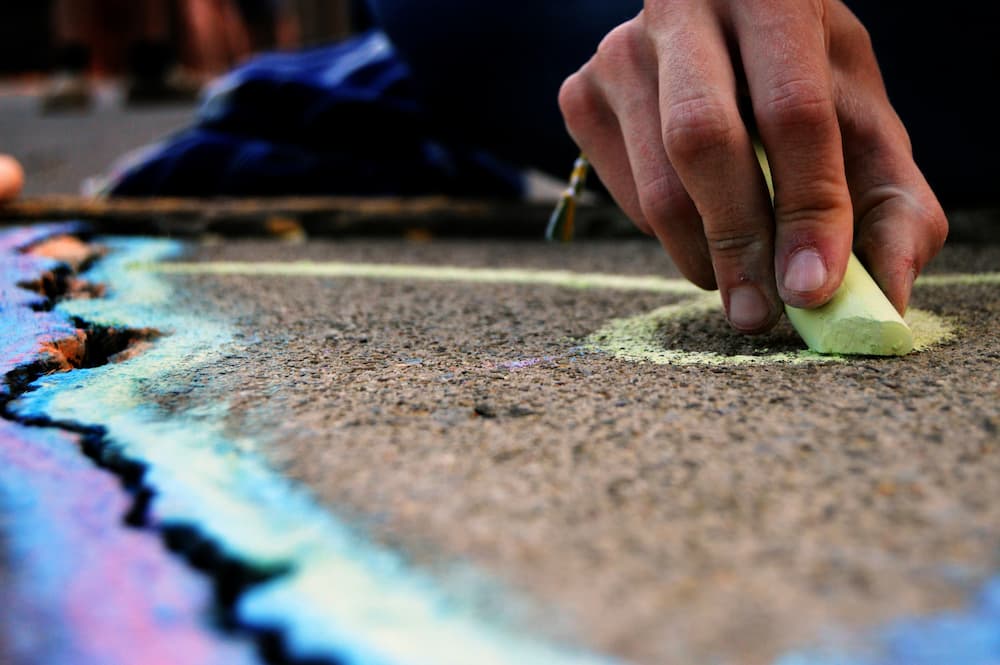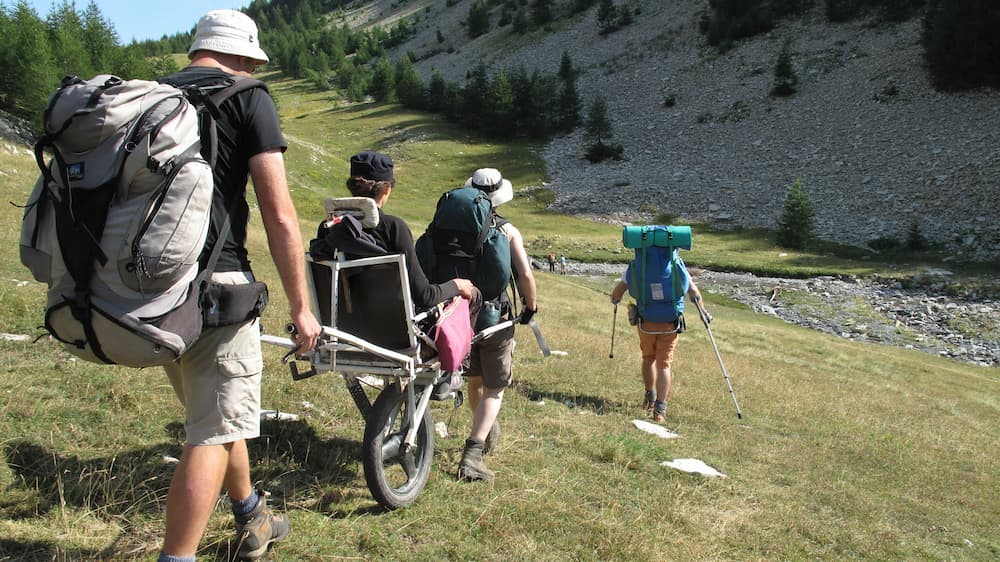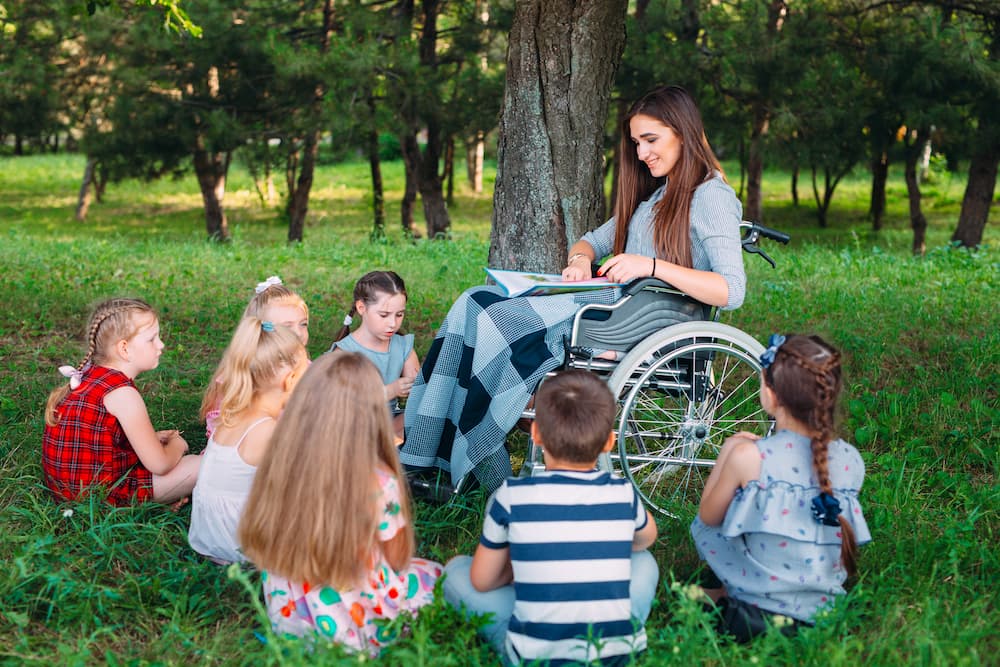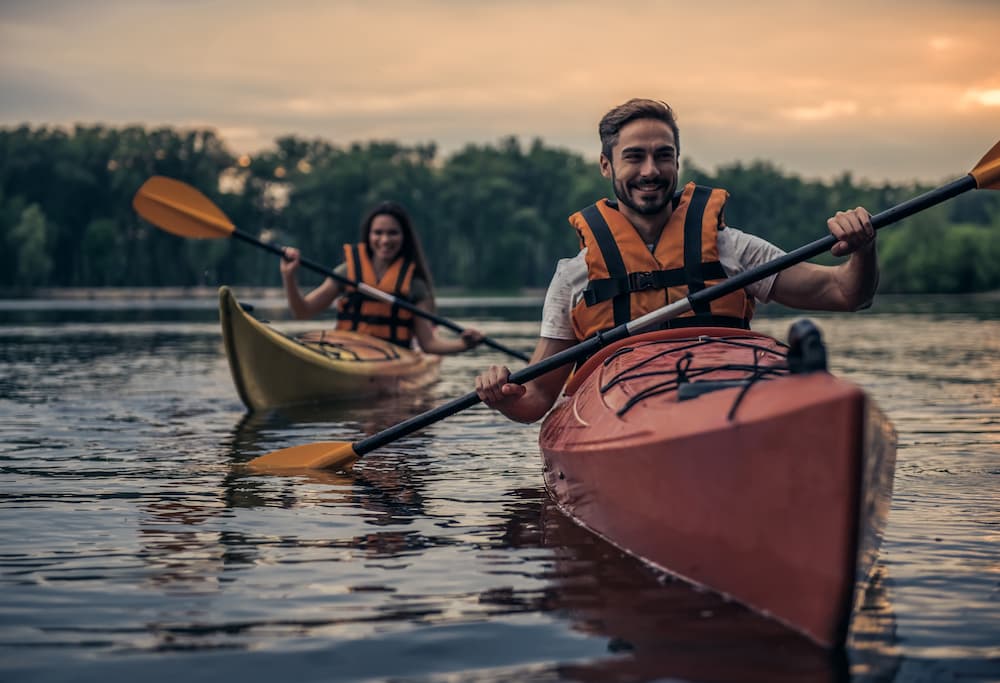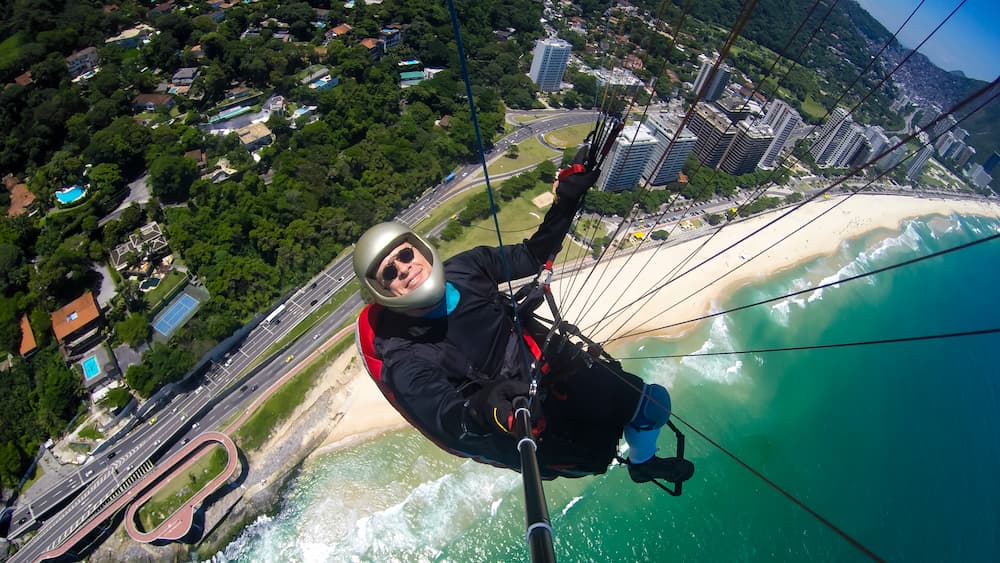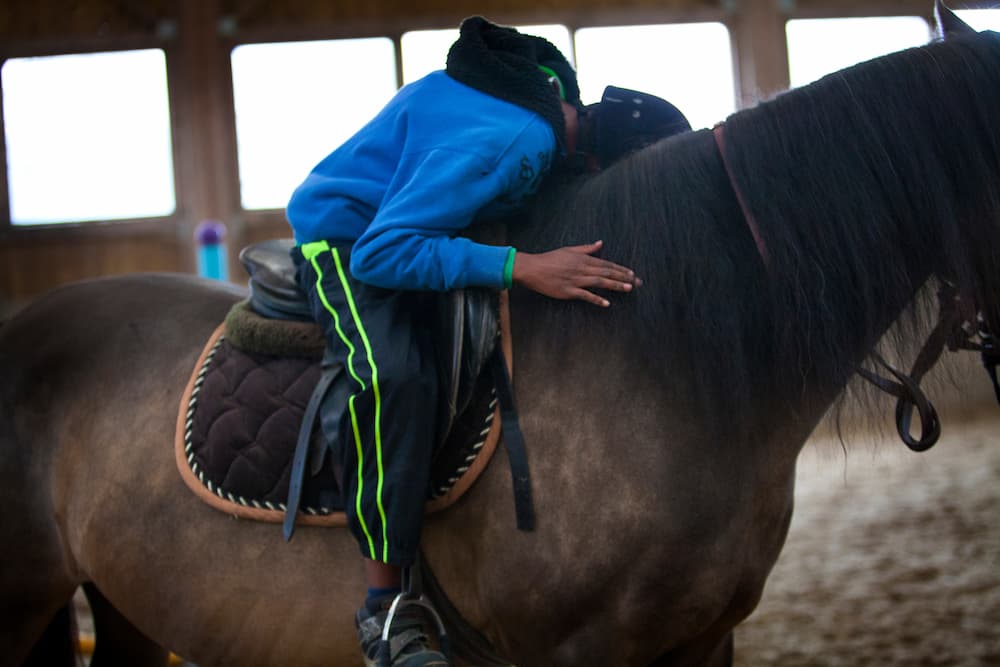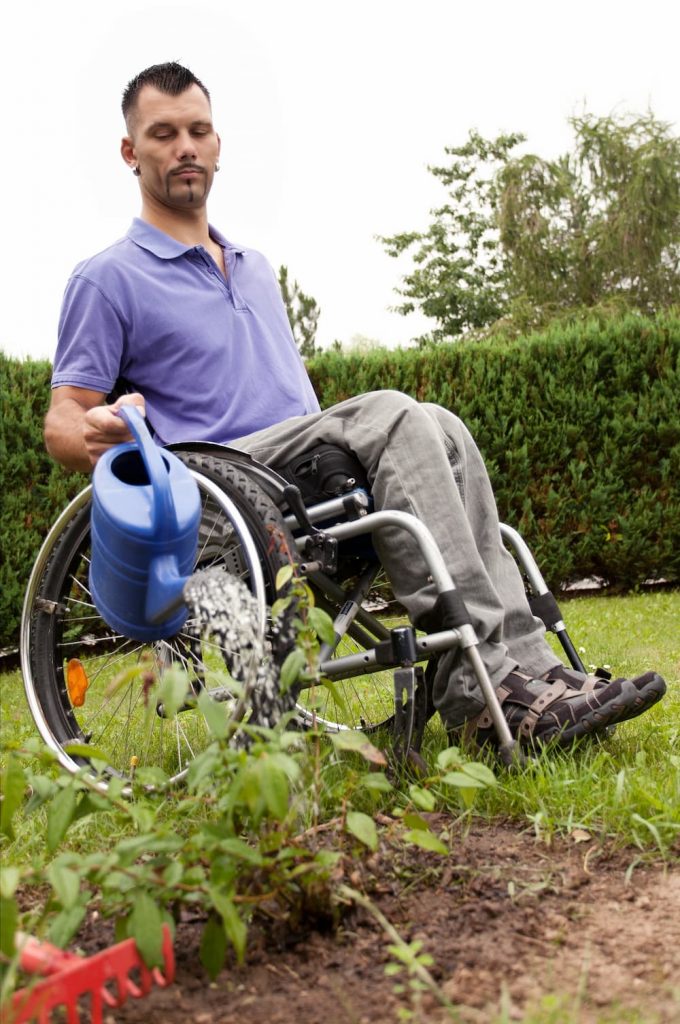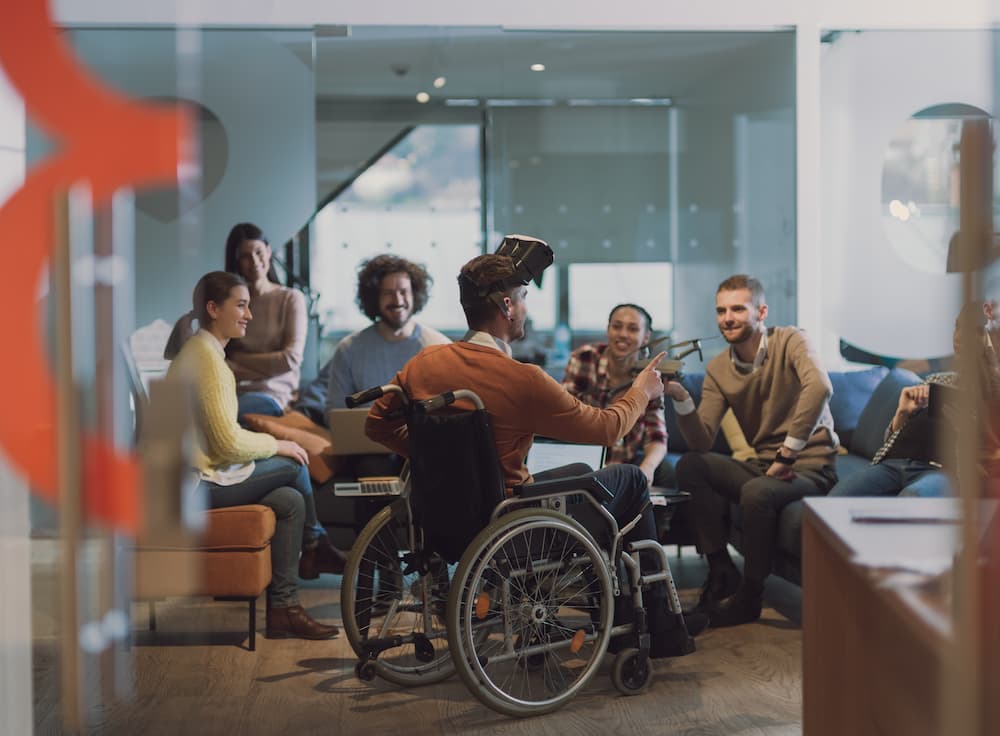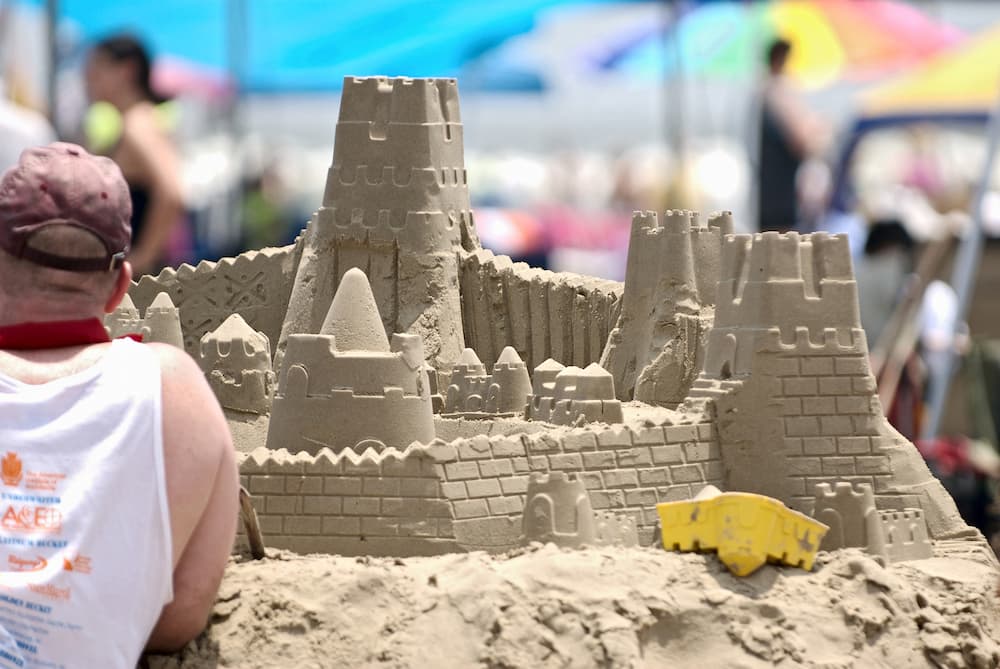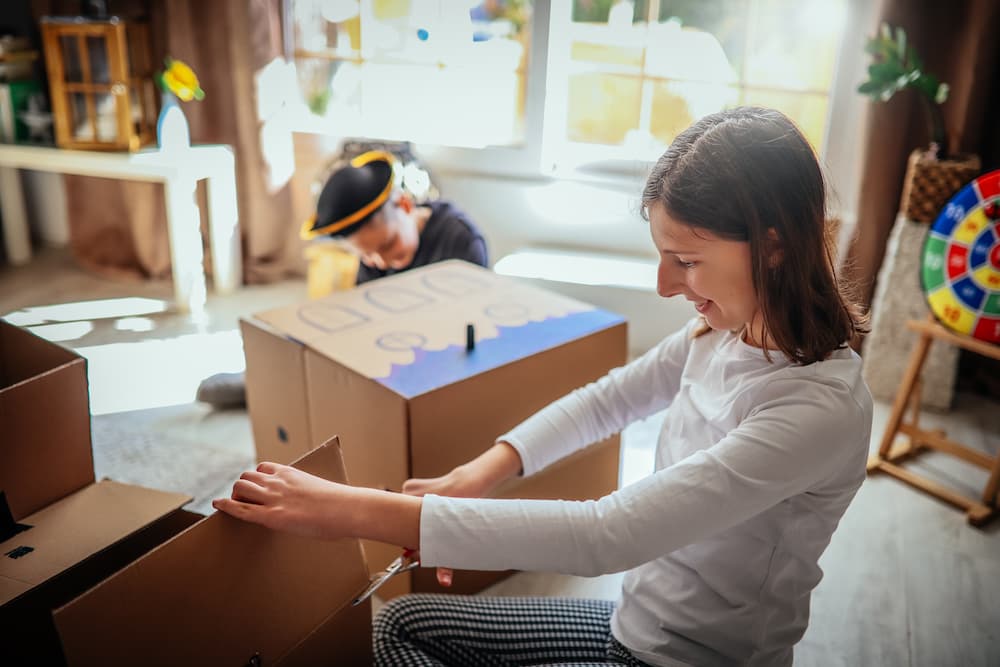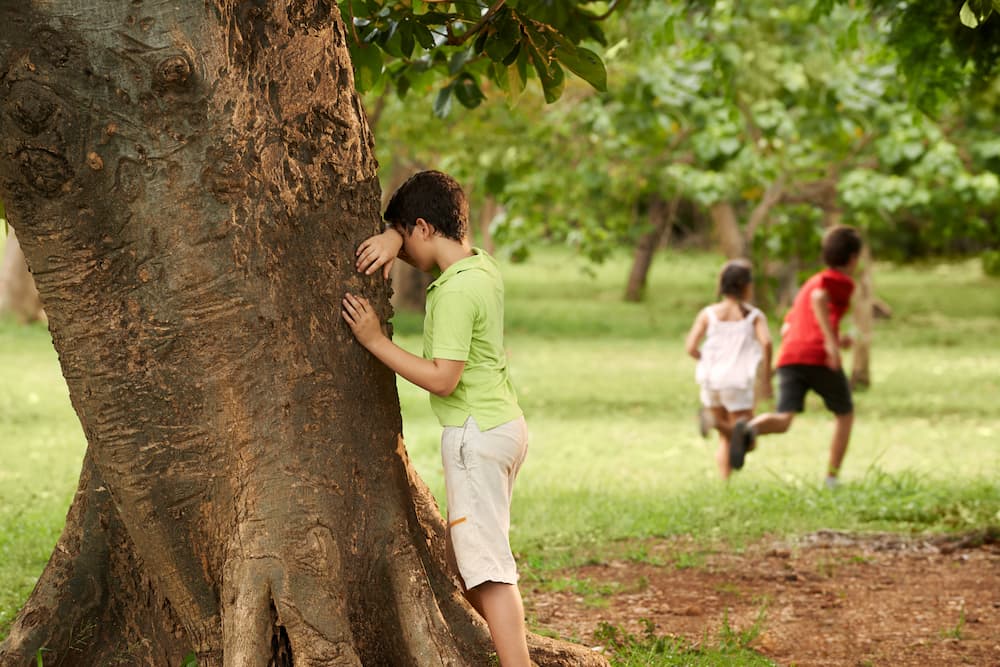Those who are disabled should not rule out participating in outdoor sports activities. Disabled people can safely participate in activities like skydiving, hiking, paddling, and caving with the support of adapted equipment and trained guides.
In addition to being beneficial for health and confidence, these activities also constitute a significant challenge for people with disabilities.
Outdoor sport is a great approach to improving our health and well-being, and quality of life.
Therefore, making disabled individuals feel as welcome as possible is a major task for adventure sports organizers. Many of these organizations collaborate to make their services accessible to people with and without physical or sensory disabilities.
Cognitive Outdoor Activities For Adults With Disabilities
By definition, cognitive disabilities affect the way a person thinks, learns, and behaves. This may mean that they have trouble processing information or concentrating on one task at a time. People with these challenges can benefit from an outdoor setting that provides stimulation and encourages social interaction.
Outdoor activities can also improve moods and reduce stress. Research suggests that people with cognitive and developmental disabilities often feel anxious and overwhelmed by their environment, making it difficult to focus on tasks and maintain good physical health. [3]
With enough support, however, these individuals can learn to cope with their environment in ways that don’t overwhelm them.
Adults with disabilities benefit greatly from cognitive stimulation since it helps them gain new skills but also helps them maintain the ones they currently have.
The good news is that cognitive stimulation may be done by exposing the person in your care to various activities designed to improve brain function in those with disabilities. Here are five you could consider suggesting to the person in your care.
Go Stargazing
Any individual, regardless of whether they have a disability, should be able to participate actively in astronomy. Many disabled individuals have conquered difficulties to make significant contributions to astronomy.
John Goodricke, an astronomer who was deaf and received the Copley Medal in 1783 for his study on variable stars, was recognized by the Royal Society of England for his contributions.
Edwin Frost, who had gone blind 11 years previously, served as The Astrophysical Journal’s editor and the director of Wisconsin’s Yerkes Observatory until 1932. Modern astronomers can still do their work even if they have any disability. [1]
For blind people, there is an A4BD project in which the software converts the visual images of astronomical objects to sounds. It not only helps the users to understand a certain celestial object but further helps them to initiate a proper study.
Birdwatching
Regardless of the time of year, birdwatching is a pastime that consistently delivers a high level of pleasure, and the summertime is no different.
However, if you use a wheelchair, are blind or deaf, suffer from a chronic condition, or identify as neurodiverse, you might be concerned about navigating woods, parks, and trails on your own.
Wearing filtered glasses or a magnifying glass may help if you have trouble seeing clearly. In addition, low-magnification stabilized binoculars with hand grips or other equipment may be useful for persons with mobility issues.
With Birdability, disabled adults can go birdwatching. If you are residing in Texas, it can be a great opportunity for you. People with disabilities of all kinds are the primary focus of Birdability, including individuals with mobility issues, eyesight impairments, chronic health conditions, intellectual and developmental disabilities, mental health issues, and more.
Drawing in Nature
One of the great things about being outdoors is that you can find beauty and serenity in even the most unexpected places. If you have trouble seeing or processing what’s around you, take a few minutes to sit down and draw or paint what you observe.
You don’t have to be an artist to do this – the point is to focus on the simple act of creating and to use your senses of touch, smell, and hearing to guide you. If you’re drawing with a friend or family member, take turns describing what you see, feel, and smell.
If you live in California, Yosemite Valley is a great place to visit and draw whatever you want in nature. The best thing is that Yosemite.org offers different art-related outdoor programs for people belonging to all ages and backgrounds. You can even book a custom painting class for yourself with your family or friends.
Going to Museum
Accessible museums not only imply accepting all sorts of visitors, regardless of who they are or what they look like, but it also involves making the content accessible for those people.
The Americans with Disabilities Act (ADA) does address accessibility at museums, which means museums must make their facilities accessible to people with disabilities. They are obligated to provide all sorts of audiences with access to their venues and the same level of services. [2]
The Metropolitan Museum of Art is a perfect place to visit. It is ideal for adults with disabilities. Moreover, they offer free entry to the caregivers of disabled people. It should be on your list if you live anywhere in NY City.
Coloring the Sidewalk
Using sidewalk chalk is not only a pleasant pastime for everyone but also encourages mobility and endurance. You may play games like “hopscotch” on the sidewalk, draw lines to follow, or create mazes for people to try to find their way through.
Your child’s legs and core will get a good workout from activities like these since they require them to go into a squatting position. Developing fine motor skills and properly gripping objects is facilitated by becoming familiar with the correct way to hold chalk.
Using sidewalk chalk to draw outlines of your body is yet another enjoyable hobby. Ask one of the participants to lie down and draw an outline of their own body or the body of a friend. After that, give your kid the opportunity to color in the outline’s face, clothes, and other details.
Mobility Outdoor Activities for Adults with Disabilities
Outdoor activities can also be a great way for people with disabilities to meet and make new friends. Many people who have disabilities choose to go out on the weekends, and during the week, so you will often see them hiking or biking together with others.
In addition, outdoor activities provide a sense of freedom and independence to those who experience physical limitations when they are outside the home or workplace.
For example, people with mobility impairments may enjoy being able to walk without assistance or lift objects that would otherwise be difficult for them to move.
The following are some of the most common outdoor activities for adults with physical disabilities:
Hiking
You can plan a hike in the great outdoors that includes persons living with intellectual and developmental impairments and adults who do not live with these types of disabilities. You can easily find wheelchair-accessible trails around you.
People who are not themselves living with intellectual and developmental impairments should be invited, but they must be compassionate and emotionally stable enough to know how to connect with and relate to their adult friends.
You do not want to involve your buddy who lives with an intellectual and developmental impairment in a community that would cause them to feel less human and cause them to withdraw more into their shell. This will harm the mental health and well-being of such individuals.
To join a hiking program, you should consider NORA’s SOAR program. In this program, you will get access to all the necessary equipment and support from a well-trained team.
Camping
One of the best things about camping is that it’s a great outdoor activity that people of all ages and abilities can enjoy. Gather all your closest friends and family members into one place, pack up the car with all the essential camping equipment, and make your way to the prettiest campground in the area!
It shouldn’t be too difficult for you to discover a campground that is accessible to individuals with disabilities these days because there are a lot of them, and many of them have made accommodations for them.
If you are living in Oregon, you can join the Adventures Without Limits Campability program, which is superficially focused on people with disabilities.
Canoeing and Kayaking
Canoeing is an activity that may be enjoyed by many persons with various disabilities, including physical, intellectual, and cognitive disabilities. Many different clubs around the United States cater to those with disabilities and offer various sports.
In addition, various watercraft, such as rafting and kayaking, has been modified to accommodate those with varied disabilities.
Many clubs and organizations offer these courses and activities, and those clubs and associations all have specially modified supplies and equipment that anybody may use (helmets, lifejackets, oars, etc.).
You can sign up for the All Out Adventures Programs if you live near Northampton. They offer a kayaking program to help disabled people enjoy this activity.
Hang Gliding and Paragliding
Paragliding may sound fun but difficult if you can’t see, hear, or move your arms and legs. However, in reality, paragliding is fun for nearly everyone.
For many, paragliding was formerly out of reach, but with advances in technology and more public awareness, it is now within grasp. Many adjustments make paragliding possible for those with physical disabilities.
A tandem flight with an expert paragliding instructor is ideal for getting started. People who are deaf, blind, unable to walk alone, or have other physical limitations have flown with the help of trained staff.
True novices always begin in this manner. Furthermore, people with disabilities are not treated like ordinary passengers; they are actively involved in the phase of flight.
Those who have profound hearing loss but still want to participate in the sport of paragliding have learned to adapt in several creative ways. People learn to indicate their intentions to their instructor and other fliers visually and use their senses to determine the wind speed rather than hearing.
Project Airtime, based in Utah, offers a paragliding flying experience for everyone, including people with disabilities. You can contact them to get the real experience of paragliding regardless of disability.
Horseback Riding
One of the most enjoyable hobbies for people with disabilities is horseback riding, which can be adjusted to suit the needs of each rider. You may begin horseback riding lessons as a beginner regardless of your current fitness level or experience.
Many people’s lives can be improved by adaptive riding, which is why it’s so incredible. As a result of the rider’s increased ability to connect with their horse, friends, and instructors, their overall quality of life is likely to improve. It’s a great opportunity to meet enthusiastic people about the same things you are.
Those are just some of the lifestyle and mental health advantages of horseback riding. Riding can help you become more physically fit by increasing your flexibility, muscle strength, and equilibrium.
The only condition is that both adults and children can keep their heads up (crucial because of the helmet) and pose no threat to themselves or others.
Project RIDE is an Elk Grove, CA organization that offers the horseback riding experience for disabled adults. It is a great way to start your horse riding journey.
Intellectual Outdoor Activities for Adults with Disabilities
Outdoor activities are a great way for people with intellectual disabilities to enjoy the outdoors. The benefits of outdoor activities include improved self-esteem, social skills, and more.
Many people with disabilities may have low self-esteem because they feel different from others. This can be caused by their disability, body size, or appearance.
Moreover, outdoor activities can help people with intellectual disabilities feel more confident about themselves and build their self-esteem by participating in activities requiring them to use their bodies and minds.
Outdoor activities can also improve the social skills of people with intellectual and developmental disabilities because they are forced to interact with others with similar interests and abilities.
Let’s look at some of the best intellectual outdoor recreation activities for adults with disabilities.
Gardening
Aging and some physical limitations can intensify feelings of depression and helplessness. Depression and a lack of interest in life might set in when they dwell on what they no longer have the ability to perform.
Disabled gardeners can gain self-confidence and a renewed sense of purpose via their gardening efforts.
Many people who previously couldn’t garden because of a disability are now able to do it on a standard garden plot with the help of a variety of accessible gardening tools. You can also find a wheelchair-accessible site.
People with mobility issues, such as arthritis, a weak grip, an inability to kneel or bend down for extended periods, etc., might benefit from various adaptive equipment.
The Sunflower Hill Garden is an outdoor classroom where people with intellectual and developmental impairments can learn and grow via various therapeutic and educational activities.
Socializing
Someone with a physical disability might need to adjust to organized recreational activities like athletics, hiking, and dancing to participate in them in the same manner that others could.
Don’t let that stop you from enjoying life to the fullest, whether finding a less strenuous method to enjoy your favorite sport or mingling with new people at a small event.
The easiest approach to connecting with others, whether you have a disability or not, is through something you have in common with them.
Doing something you enjoy with like-minded people is a great way to meet new people and build relationships. That way, you may start conversations with like-minded individuals and always have something to say.
Take the time to explain your condition to those who ask you about it, provided they treat you respectfully and seem genuinely interested in learning more about your situation. You’ll be able to have a more relaxed and natural chat with one another.
Social Club by Friends Life Community in Nashville is a great place to start socializing with some new people and make them friends.
Building Sandcastles
Whether at the beach, in a park, or even in your backyard, building sandcastles or forts is a great way to spend some time outdoors. If you have trouble using your hands, consider using tools like spades, brushes, and rakes to help create your masterpiece.
And if you find yourself getting tired, take a break and sit back to enjoy your handiwork. As a bonus, building sandcastles is a great way to stay cool on hot summer days.
You can also invite your friends to have a sandcastle fight, but make sure no one gets hurt when you guys play around in the sand.
Boating and Beach Bash offers different beach events for people with disabilities, and you can also join to create some fun outdoor memories.
Cardboard Boat Building
Instead of discarding cardboard boxes, why not turn them into boats? You should have no trouble winning the race if you use these boats. You may build ones that are strong enough to support your weight, but you have to be careful if you have a physical disability. You can also build ones that are suitable for kids to play with.
Some can be difficult to work on, but some are straightforward and quick to put up using templates. You don’t only have to focus on the boat’s shape; you can also add patterns that give it an appearance of elegance and playfulness.
You can join the SNAP Crafts program at Lexington Community Center. It is a great place to meet like-minded people and create something amazing.
Hide and Seek
The classic children’s game of “hide and seek” helps kids develop the social skills, gross motor skills, and critical thinking abilities essential for adulthood and successful social participation.
But the question is, can developmentally disabled adults play “hide and seek”? Well, why not. You are never old to play outdoor games like “hide and seek.” Moreover, if you or your friend has an intellectual disability, then this game will be a fun way to spend some time outdoors.
Individuals diagnosed with autism may struggle in both their social and analytical skill areas.
They may have trouble telling the difference between actual life and pretend play, which makes it difficult for them to play a game like ‘hide and seek.’ However, it can be really easy with the help of friends or family members.
You can get National Park Access Pass to play games like “hide and seek” in different national parks across the USA. These parks have special equipment and service animals in case you need them.
Conclusion
Regardless of your disability, you can still enjoy the great outdoors. Many people with disabilities find that they have the same interests as their non-disabled friends and family members, and some even enjoy activities that are not accessible to everyone.
Whether you’re a wheelchair user or simply an older person who isn’t able to climb mountains, there are many ways for you to explore nature and get some fresh air.
You can pick any of the above-mentioned outdoor group activities and plan with your friends to enjoy. Make sure you always have trusted friends around you.


